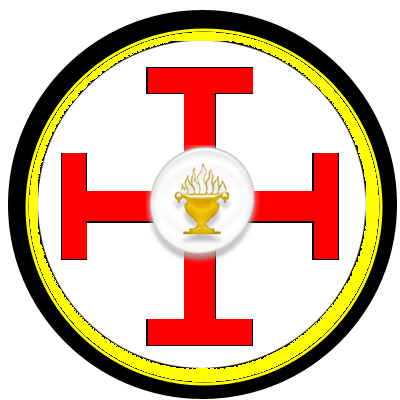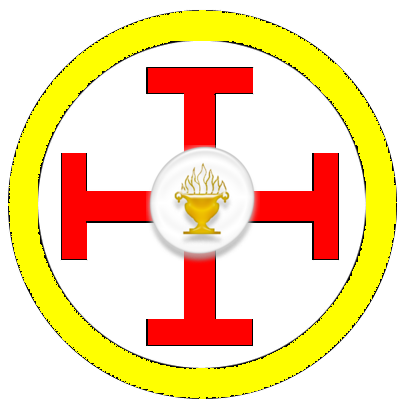Zorochristianism is a Christian religious movement founded around Agathist philosophy.
Zorochristianism emphasizes knowledge and right thinking - which is the generator of the right action needed to produce the better world.
Culturally it is Greco-Persian - drawing from the philosophy of both ancient Persia and ancient Greece. Greco-Persian wisdom is the foundation of Western Civilisation and Zorochristianism provides a gateway for us to renew our contact with our intellectual cultural roots.
Zorochristianism can be regarded as a radical reformation of the Christian tradition. It seeks out the ethical roots of Christianity which are to be found in the teachings of Zoroaster. Zorochristians seek to marry the early Persian scriptures with later writings and traditions to gain a religion with a firmer philosophical foundation.
Zorochristians are Christians who consider Zoroaster as the philosophical founder of their tradition (a role somewhat equivalent to John the Baptist in Judeo-Christianity). Most Zorochristians worship Jesus as superchrestor or supreme saviour teacher.
God
God is defined as what we worship - and what we worship - i.e. pay attention to and treat as valuable and important - is all that is the foundation and producer of the good life for us and for everybody.
God is the source of life, but God had a complex nature. God is both in the underpinning of the Universe and in the Good Actors within the Universe. Thus Zorochristians resist any over-simplified unitary view of God.
Zorochristians recognise the tensions between the different aspects of God. God allows evil things to happen and this may not be fair at all for us as individuals, even if it is a consequence of our collective actions as human beings. However we believe that God desires the Good for He has placed such knowledge at the heart of our being in our innate distinction of Pain and Joy.
God has also given us the ability to progress towards the Good if we are sufficiently free and determined enough to do so. As Zoroaster teaches, existence unfolds according to rules that our minds can potentially discover. If we align ourselves with Truth then our actions will become the Right ones to create the righteous order of maximum happiness and joy.
Some aspects of the religion
The Anghoruna or Existential Elements are ways of making sense of the the most basic nature of existence. They include Zurvan, the substrate of time and space, Urvan the Soul, Agathon the Ideal Good towards which Urvan strives, and Kakon the Bad who Urvan strives to avoid.
The Agathoi are 'the good beings'. They are regarded as the children of Urvan and Agatha. They are the consequence of the successful striving of Urvan towards the Ideal Good which is Agatha and his union with Her. There are twelve Agathoi given pride of place. These include Arta, the righteous order of life; Auramazda the wise lord who produces Arta and Chrestus-Aristus the human son of Auramazda.
The Tropoi Fravarti are favoured paths of action or forms of personality. They are ideal paths that Auramazda can take in his production of the flourishing order. There are many possible tropoi fravarti but seven are given pride of place in Zorochristianism and have 'Angels' which announce them to us, called the Angeloi Tropikoi. These include Sarus the Listener, Anhita the Mother and Mithras the Righteous Leader.
The Magoi Fravarti are wise men to which we pay attention for the assistance they can give us. Three of these have canonical status as the foremost teachers of the Good and are called the Trimagi. Their work forms the recommended foundation for our own individual struggle to understand the nature of life. The Trimagi are Zoroaster, Plato and Aristotle.
Chrestus-Aristus
Chrestus-Aristus is the 'Useful One and the Best'. Chrestus is the conscious human agent in striving for the Good. Chrestus has a love of life, a desire to see the individual and common flourishing. Chrestus is the good servant of the world-soul, seeking its upward progression.
Chrestus is the best kind of human being - the fully adult human being, mature in mind, soul and soul.
Adult in mind, Chrestus has Eunoia or Good Thinking - able to see things clearly, the web of cause and effect relationships and awareness of the good - the ultimate good and the instrumental good.
Adult in soul, Chrestus has spiritual strength and emotional maturity. Chrestus is caring and courageous and his emotional engagement matches the true needs of the situation.
Adult in hand and body, Chrestus is strong, healthy and capable. Chrestus has all that is needed to take effective action and change the state of the world.
Chrestus and Jesus
We can describe someone as Chrestus if they are a good and useful person, someone who works to support the flourishing of life.
Historically among the ancient speakers of the Greek language a person was given the title Chrestus if they were considered an exceptionally good and useful person. Jesus was called Chrestus (the Good) as well as Christus which meant annointed. The two words sounded similar when spoken and were confused.
Zorochristians don't believe that Jesus alone can claim the title Chrestus, for Chrestus is a phenomenon that transcends any single individual. Neither Jesus, nor anyone else, is able to fully represent the richness of the personality of Chrestus. Over-identification of Chrestus with a Jesus in history provides a distorted idea of what Chrestus needs to be.
We don't believe that God calls us all to be copies of the historical Jesus, but that there are varied paths that we can take depending on our nature. This variety is represented in Zorochristianism by the Tropoi. Sarus is considered first among the Tropoi by Zorochristians and his personality has a similarity to that of Jesus. However other Tropoi such as Mithras have important characteristics which Jesus lacks and must also be considered to gain a rounded understanding of what Chrestus is.
To recap:
Firstly we believe that Jesus as a man came to demonstrate the idea of the divine saviour of the individual and that it is this divine being which can express itself through many people that should be the focus of attention, rather than the historical person.
Secondly we believe that the Jesus-personality (which we call the Sarus-personality) cannot save mankind alone. We believe that we need additional personalities to work with him - for instance Mithras, Anhita and Vatis.
We believe that Chrestus-Aristus and his supporting Angeloi Tropikoi can save mankind from the terrible predicament it is getting itself into. They can work together as the divine saviours of mankind - to bring people out of a bad life of poverty, danger or slavery into a better life of freedom and fulfilment. They are the potential divine saviours of the world and its inhabitants if we work to pave a way for their arrival into their full glory.
Chrestors
Chrestors are human 'saviours' of the world (in Persian 'saoshyant'). Chrestors are people who work to help the living world by taking on the nature of Chrestus-Aristus and profitably using the powers of the divine Tropoi.
It is the agenda or purpose of Zorochristians to become good chrestors. We struggle towards the Good. We seek to play our part in the healing of the world from its corruption. We seek to stand against all deviation from the path of truth and righteousness. We work to restore the world it to its pristine freshness. We push for the righteous order that brings the common flourishing.
Ave Agathoi! Ave Angeloi! Ave Trimagi!
Ad bonum tendimus et via artista est!
Updated December 2022 CE but with room for improvement
The Chalipa
The Chalipa is a symbol used by Zorochristians to represent the religion. The symbol is made up of an equilateral cross potent superimposed with a typically seven-flamed firepot in a circle all enclosed by a larger circle. Chalipa means 'cross' in Persian and refers particularly to the sun cross at the centre of the symbol as well as the whole symbol.

|
Please join our discussion group:
Zorochristian FB Group
|

